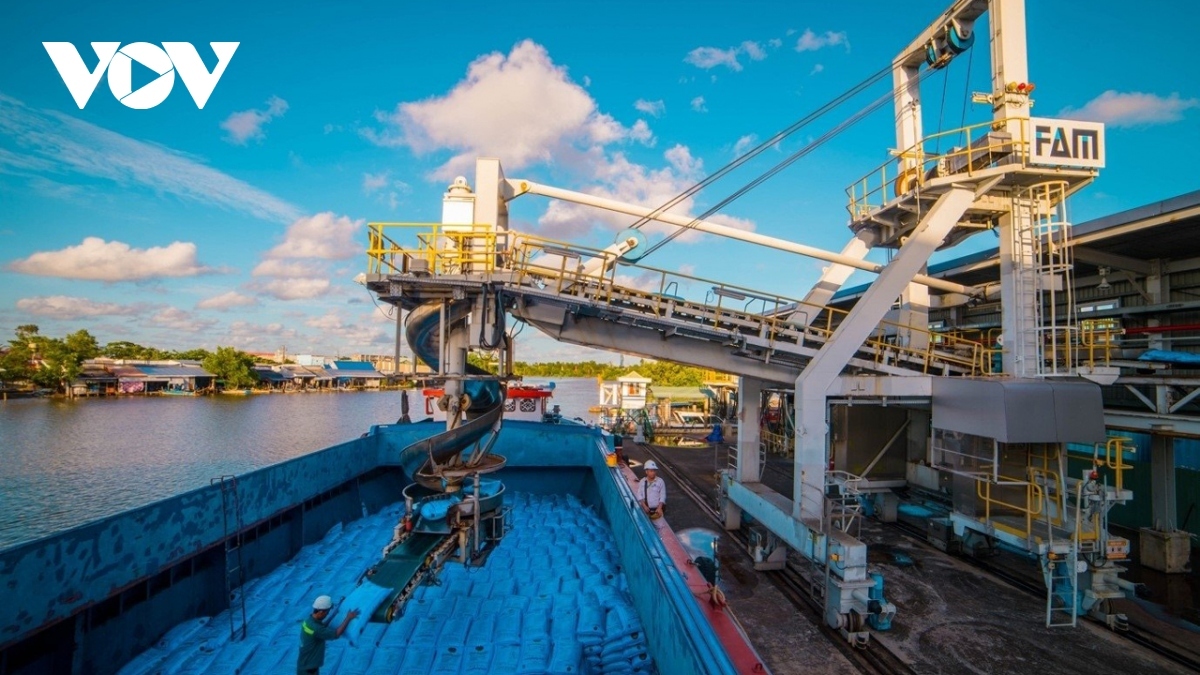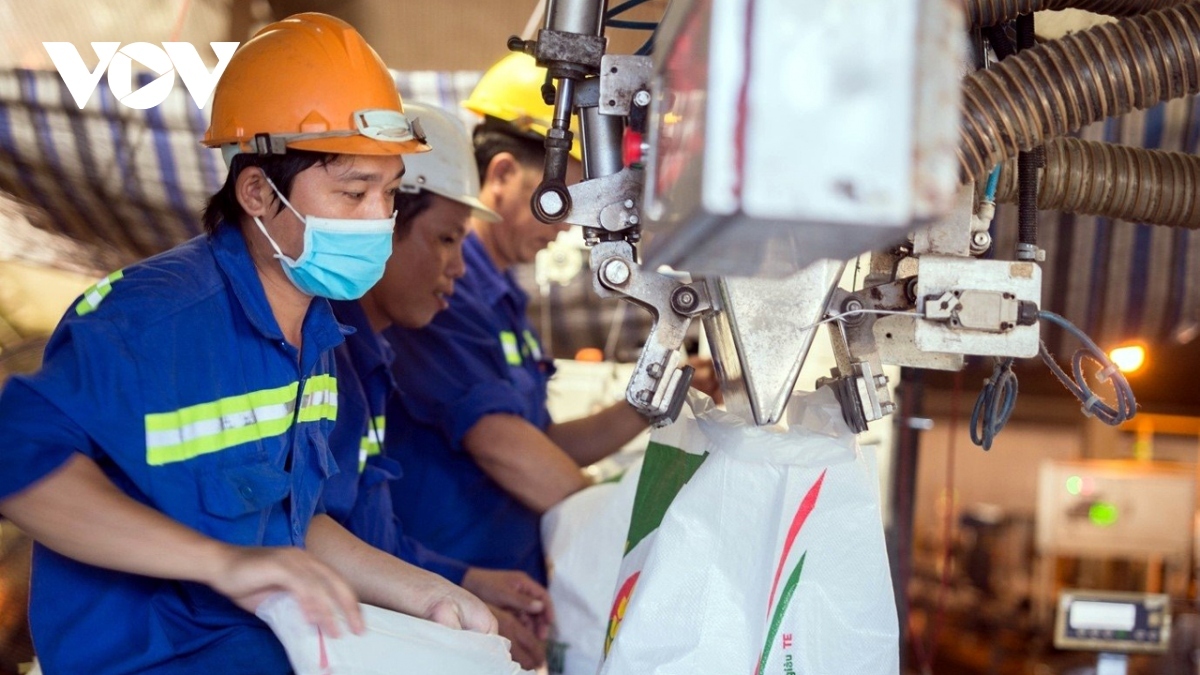Impressive trade growth bodes well for exports ahead in 2023
VOV.VN - Vietnam is expected to enjoy a wealth of opportunity to raise trade turnover by 6% in 2023 after bringing in more than US$700 billion for the first time in 2022.
Impressive performance despite difficulties

The Ministry of Industry and Trade reported that the country’s total import-export turnover is projected to reach approximately US$732 billion by the year’s end, representing an increase of roughly 10% compared to 2021. This marks the first time that Vietnam’s foreign trade has surpassed the US$700 billion mark, representing an increase of seven times 15 years on from becoming an official member of the World Trade Organization (WTO).
Deputy Minister of Industry and Trade Tran Quoc Khanh said that the export turnover for last year is set to rise by 10.5% to US$371.5 billion, while the import turnover of goods is expected to climb by about 8.5% compared to 2021. It is also noteworthy that 2022 witnessed Vietnam produce a trade surplus of more than US$11 billion, marking the seventh consecutive year that it has enjoyed a trade surplus.
“The impressive growth has helped Vietnam balance its payments, improve foreign exchange reserves, and stabilize exchange rates and other macroeconomic indicators of the economy,” said Deputy Minister Khanh.
Garments and textiles are one of the industries that have gone to great lengths to overcome challenges as a result of falling orders and shrinking markets globally. Statistics indicate that despite difficulties, the garment industry raked in US$42 billion from exports, an annual rise of 3.8%, whilst products from this sector were exported to 66 countries and territories, up 17.2% over the same period from last year.
Vu Duc Giang, chairman of the Vietnam Textile and Apparel Association (Vitas), attributed last year’s gains to Vietnam’s signing and implementing 15 free trade agreements.
“This has laid a firm foundation for market diversification,” noted Giang, adding that garment makers are currently accelerating the transformation in the fields of digital management, supply chain, and autonomy, in order to catch up with the trend of greening and sustainable development.
Discussing the impressive import-export turnover recorded in 2022, Tran Thanh Hai, deputy director of the Import-Export Department under the Ministry of Industry and Trade, pointed out swift control of COVID-19 has boosted the recovery of production and trading.
“This is the great motivation for creating a sufficient source of goods for export activities as well as for importing necessary materials for production,” said Hai.
Along with the effective implementation of FTAs, efforts aimed at facilitating trade and administrative reforms to support export and trade promotion made practical contributions to import-export activities last year.
However, Hai assessed that Vietnam relies too much on the operation of FDI businesses that account for about 74% of the economy’s total export turnover. In addition, market diversification of some products, especially fruit and vegetables, remains slow, meaning these products are yet to meet the standards and quality requirements of import markets.
“Despite the impressive performance in 2022, preliminary reports predict 2023 will be another difficult year for Vietnam’s foreign trade when disadvantageous factors do not show signs of abating,” said Hai, “Especially consumer industries such as textiles and garments, leather and footwear are set to continue to face difficulties in terms of orders and raw material imports in 2023.”
Attention to green standards and carbon tax

In the year ahead, the Ministry of Industry and Trade has set a target of raising the total export turnover by about 6% compared to 2022, while striving to maintain a trade surplus. TO achieve this goal, it will largely focus on expanding import and export markets and diversifying partners, sources of goods, and supply chains. It will synchronously implement solutions aimed at promoting sustainable official exports, effectively improving the trade remedy capacity, giving early warnings, settling trade and international investment disputes, and reasonably protecting the legitimate interests of both businesses and people.
Hai suggested that as environmental protection is an urgent requirement at present, businesses need to focus on ensuring the standards of greening export products.
“Although this requirement may only affect a few large groups of enterprises, these enterprises have an impact on the market, forcing businesses in the supply chain, including outsourcing, manufacturing and exporting enterprises, to come up appropriate response plans,” said Hai.
The expert also reminded that some markets such as the EU are expected to impose new tax lines related to the environment, including a carbon tax. At that time, export products that consume a lot of energy, without a solution to reduce emissions, will have to pay more taxes.
“With this regulation in the pipeline, the competitiveness of products will be affected, so businesses need to study and have solutions,” he suggested.
